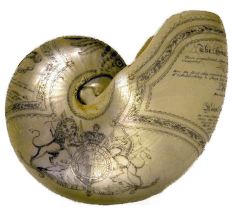Location: the historic Silk Mill, Whitchurch, Hampshire, RG28 7AL, UK.
 Cost:
Cost: Three-day taxidermy conservation course: £300.
N.B. If you book this taxidermy conservation course plus the two-day course on the conservation of pinned insects (which costs £250) the combined total would be just £500 (saving you £50).
Grant-aid can be sought from your local regional museums service for up to £500.
For south-east UK see: www.southeastmuseums.org
Training delivered by: Simon Moore. Simon Moore MIScT, FLS, RScI, ACR, Conservator of Natural Sciences.
Contact: email couteaufin@btinternet.com or call 07900 36 8757.
Directions and accommodation: See suggestions at the bottom of this page.
 Day 1: 10.00 start. Introductions, local logistics, fire-exits, risks, allergies (please advise Simon Moore prior to course), loos and house Health & Safety rules.
Day 1: 10.00 start. Introductions, local logistics, fire-exits, risks, allergies (please advise Simon Moore prior to course), loos and house Health & Safety rules. Power-point of course outlines, problems etc this will outline the course, some of the problems you are likely to encounter.
Introduction to projects the idea is that each student should tackle as wide as possible the different techniques involved rather than just settle on one particular specimen/problem.
Look at pest damage as this is the most usual (pests are shown during the PowerPoint presentation).
How to prevent pest damage basic Integrated Pest Management (IPM).
Ethics of Conservation vs. Restoration how far should one go remedially?
Other deteriorative mechanisms humidity, temperature fluctuation will also be mentioned, along with fading.
How to manage these problems (preventive conservation) and remedy the resultant damage.
Practical sessions begin with selecting suitable specimen for treatment/s. Tea/coffee break at agreeable time.
c. 13.00 Lunch (1 hour) Lunch is not provided so you are advised to make own arrangements, either local shopping or there is a baker / sandwich shop on the corner of the Square (just by the White Hart Hotel) and there are 3 small supermarkets. However, the Silk Mill has its own café (very good) and you can pre-order on arrival. Course refreshments can also be provided but at your own expense.
Afternoon continues with practical work until c. 17.00
Likely projects: cleaning fur and feather. Replacing unsuitable/missing glass eyes.
Dressing/rehydrating dried areas of skin and other keratins, including claws, beaks. Treating rusted armatures. Dealing with fat-burnt areas. Dealing with pest-damaged areas.
Transplanting fur swatches. Straightening bent feathers, repairing broken/damaged feathers. Replacing damaged armature parts. Discussion on pest fumigants.
Cases (if available) and you are permitted to bring your own but not too large please!, and please let Simon know beforehand. Opening cases that are sealed with tapes and/or framing beads. Repairing case backs that have shrunk and split. Some specimens may be available for you to keep after each course. If you wish to do this, be prepared for transport them!
Day 2: 09.15 start
Practical sessions, continue working in more advanced problems once the student has required the basic knowledge and skills. Try some needle felting for repairing / restoring bald patches of fur. Fur transplanting useful to recycle and restore bald areas of fur especially on skin rugs. Uses of Japanese tissue (Gampi) to restore missing areas of skin, claws and beak sheaths; repairing pest-damaged feathers and restoring damaged mammal ears. Painting in of restored and gap-filled areas.
Day 3: 09.15 start
Practical sessions continue leading to a gradual completion of each project (you may have several by this time).
Replacing case framing beads, suitable lacquer for painted areas.
Brief verbal assessment of how students have coped with the course (time permitting).
Finishing of practical work and projects, then group photo
- 16.30 17.00: Packing up & Depart
Please bring with you if possible: lab coat, digital/phone camera, small hair-dryer, close-up visor (I usually have one or two for borrowing or sale), dissection instruments (including an old toothbrush) and artist paintbrushes. These will be provided for use but if you can bring some, it will be most helpful. I will also have a few instruments for sale. ** Please note that lunches are not provided and you will have to buy these yourself or bring your own. Simon Moore MIScT, FLS, RScI, ACR Conservator of Natural Sciences.
Contract: If you wish to attend the taxidermy conservation course, you will need to sign below and return to Simon Moore as a jpg photo/scan by e-mail.
Once attendance has been confirmed by e-mail, one third of the course fee will be payable in the event of a no-show or late cancellation. Notice of cancellation can only be accepted 2 weeks prior to the commencement of the course. If a pro-forma invoice is required in advance, please advise Simon Moore (couteaufin@btinternet.com).
Please sign below to say that you agree with these terms (Taxidermy course).
Print name:
Signature:
Date:
Place of employment (if freelance, please give a brief address):
There are not many hotels except the White Hart Hotel which is very central and about 250 metres from the course venue. Otherwise look for B&Bs in the area. Whitchurch has its own rail station with trains to and from London Waterloo.
Directions: see map below (the Silk Mill is by the river).
The (very small) Silk Mill car park is only available for disabled persons, but you can park at the Gill Nethercott Centre situated just by the Silk Mill, just south of the small island in the River Test. There is also a central car park in the middle of town (Bell St.) The nearest airport is Southampton and Heathrow airport is about an hour east by car.

